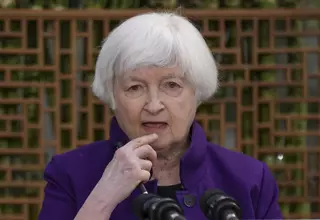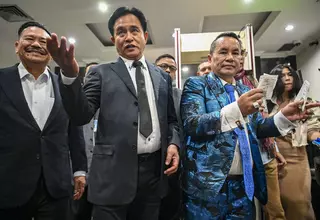Consumer Group Opposes C. Bank's Plan to Charge Extra Fees on Cashless Top-Ups
Jakarta. Bank Indonesia's plan to allow lenders to charge top-up fees on electronic money systems was met with criticism from the Indonesian Consumer Protection Foundation, or YLKI, which argued that extra fees would burden low-income customers.
Electronic money systems have risen in popularity in the country over the past few years, in large part due to the central bank's efforts to promote cashless transactions. Most commuters in Jakarta now use plastic cards to pay fees to use public transportation like Transjakarta and commuter trains.
Local banks, however, said their investments in cashless systems have yet to yield significant returns and previously urged Bank Indonesia to issue a regulation that would allow them to make money whenever customers increase their e-money balance.
YLKI was quick to voice opposition to the proposed regulation.
"A cashless society is in line with the digital economic phenomenon. But it would be counter-productive if Bank Indonesia releases a regulation to charge consumers for topping up their electronic money [balance]," Tulus Abadi, YLKI's managing director, said in a statement over the weekend.
Tulus said customers pay fees to start using e-money systems and that banks do not have to pay interest on customers' balances. It would be "unfair and inappropiate," Tulu continued, to force customers to pay extra fees each time they top up their balances.
"Banks' profits should be based on circulating capital by giving loans, not by taking a fee from penny transactions," he said.
"Imposing fees for top-ups are only tolerable if consumers are using a different bank for another bank's electronic money," Tulus said. "Otherwise, no way!"
Bank Indonesia Governor Agus D.W. Martowardojo previously said the regulation will be officially introduced by the end of September and which will set a maximum fee for topping up electronic money balances.
Electronic money will become more critical in day-to-day activities in the country following the government's decision to only allow access to toll roads via e-payment solutions, which will become effective on Oct. 31.
As of July, 69.45 million e-money accounts were registered in the country, up nearly 36 percent compared to the number of accounts registered in Indonesia at the end of 2016.
According to Agus, as quoted by state-run news outlet Antara, banks need to charge extra fees to invest in infrastructure projects, provide automatic booths and pay workers' wages to sell electronic money systems.
Tags: Keywords:POPULAR READS
Nissan to Make Next-Generation EV Batteries by Early 2029
Solid-state batteries are widely seen as the next step for EVs.Airlangga Set to Extend Leadership in Golkar After Election Success
Under his leadership, Golkar rose to the second position in the legislative polls and successfully made Gibran the elected vice president.Yellen Says Iran's Actions Could Cause Global 'Economic Spillovers'
Iran's missile attack on Israel early Sunday came in response to what it says was an Israeli strike on Iran's consulate in Syria.Takeaways from Prabowo's Responses to Legal Motion Contesting His Election Win
Part of the argument addresses the claim that the candidacy of Gibran Rakabuming Raka, Prabowo’s running mate, is unlawful.Prabowo Camp Cites ‘Procedural Error’ in Legal Challenge by Rival Candidates
The Constitutional Court's main task is to address alleged discrepancies in vote tallies, which neither of the plaintiffs challenged.Popular Tag
Most Popular






















